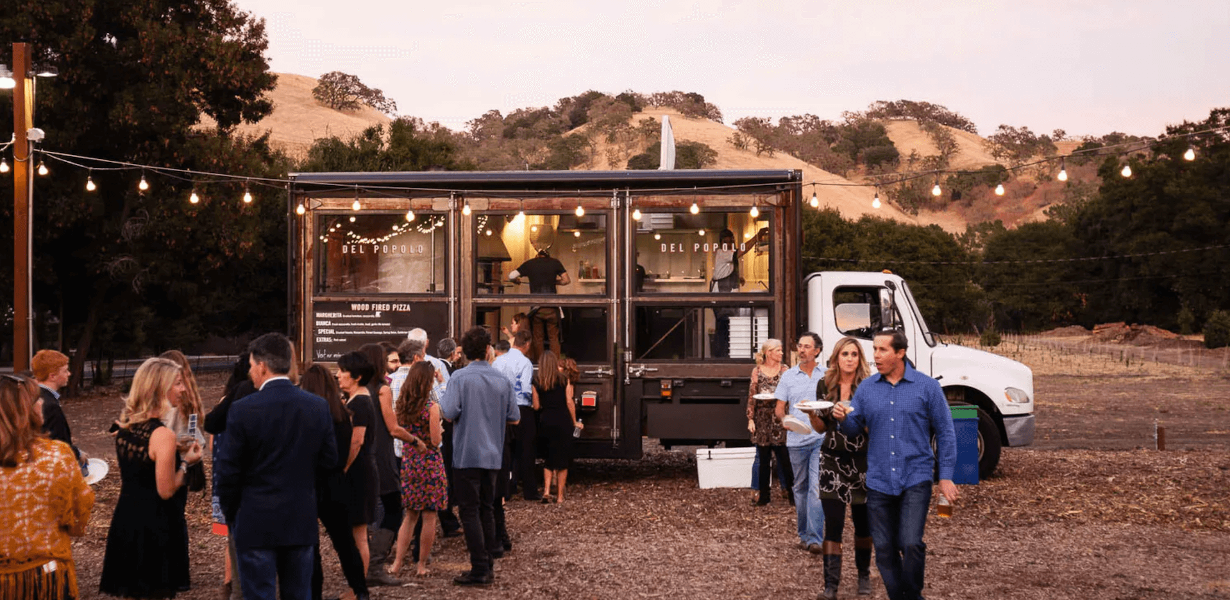
Food Trucks: A Culinary Journey on Wheels
- Post
- August 21, 2023
- Food & Drinks, Food Trucks, Street Food
- 0 Comments
Food trucks have become a staple of modern urban landscapes, offering a unique and flavorful culinary experience that transcends traditional dining. As these mobile eateries roll into town, they bring with them a fusion of tastes, aromas, and cultures that captivate both locals and visitors. In this comprehensive guide, we delve into the vibrant world of food trucks, exploring their history, the diverse cuisines they offer, the challenges they face, and the reasons behind their widespread appeal.
A Glimpse into Food Truck History
The concept of mobile food vending has deep roots, with street vendors selling their fare dating back to ancient civilizations. However, the modern food truck movement gained momentum in the 20th century, with taco trucks and ice cream vans becoming iconic symbols of American culture. Over time, food trucks evolved from basic snack providers to gourmet kitchens on wheels, offering everything from burgers and tacos to artisanal desserts and international delicacies.
The Unique Allure of Food Trucks
Food trucks offer an experiential dining adventure that traditional restaurants often can’t match. Here’s why they’ve captured the hearts and palates of people around the world:
Varied Cuisine: Food trucks present an eclectic mix of cuisines, from Korean BBQ and Mexican street food to vegan delights and gourmet grilled cheese sandwiches.
Affordability: These mobile eateries frequently offer delicious options at a fraction of the cost of traditional restaurants.
Local Flavor: Food trucks often source ingredients locally, showcasing the region’s culinary identity and supporting local producers.
Novelty: The thrill of finding a hidden gem, trying a new dish, or stumbling upon an unexpected food truck creates a sense of excitement.
The Food Truck Phenomenon Around the World
The food truck phenomenon is not confined to a single country or culture. From bustling Asian markets to European streets, and from North American festivals to Australian beaches, food trucks have become a global sensation. Each region adds its unique twist to street food, blending traditional recipes with contemporary influences to create mouthwatering dishes that resonate with locals and tourists alike.
Navigating the Challenges of Mobile Gastronomy
While the food truck industry offers tantalizing opportunities, it’s not without its challenges:
Regulations and Permits: Navigating permits and regulations can be a daunting task for food truck owners, as different cities and regions have varying requirements.
Weather Woes: Inclement weather can impact foot traffic and affect the business’s bottom line.
Limited Space: Operating within a confined space requires chefs to streamline their menus and optimize kitchen layouts.
Parking Predicaments: Finding suitable parking spaces in high-traffic areas can be a constant struggle for food truck operators.
The Innovation Behind Food Truck Design
The evolution of food trucks goes beyond culinary creativity; it extends to their design and aesthetics. Food truck owners embrace innovation, crafting visually appealing vehicles that reflect their brand identity. From vintage-inspired trucks with a rustic charm to sleek, modern units equipped with cutting-edge kitchen technology, food trucks are a blend of style and functionality.
Food Trucks and Social Media Synergy
The rise of social media platforms has played a pivotal role in the success of food trucks. These platforms enable food truck owners to connect directly with their audience, sharing their location, menu updates, and behind-the-scenes glimpses. The immediacy and interactivity of social media enhance the sense of community around food trucks, turning customers into loyal fans.
Exploring Culinary Entrepreneurship
Food trucks provide a low-cost entry point into the culinary world, allowing aspiring chefs and food enthusiasts to bring their creations to the masses without the financial burden of a brick-and-mortar establishment. This democratization of the food industry has sparked a wave of culinary entrepreneurship, fostering innovation and diversity in street food offerings.
Sustainability and Local Sourcing
Many food truck operators prioritize sustainability by sourcing local and seasonal ingredients. This eco-friendly approach not only supports local farmers but also reduces the carbon footprint associated with transportation and food production. Food trucks often lead the way in promoting ethical practices in the food industry.
Final Words
In a world that craves culinary experiences that transcend the ordinary, food trucks stand as ambassadors of innovation, diversity, and community. These mobile kitchens on wheels are more than just places to grab a quick bite; they’re symbols of the creativity and passion that fuel culinary culture. As food trucks continue to evolve, their impact on the gastronomic landscape is undeniable, promising a flavorful and exciting future.
Commonly Asked Questions:
Q1: Are food trucks a recent trend?
A1: While food trucks have gained significant popularity in recent years, their history can be traced back to ancient civilizations. However, the modern food truck movement as we know it began to take shape in the 20th century.
Q2: What types of cuisine do food trucks offer?
A2: Food trucks offer a diverse range of cuisines, including but not limited to Mexican, Korean, Italian, vegan, and gourmet sandwiches. The variety of choices is one of their most appealing features.
Q3: How do food trucks deal with regulations?
A3: Navigating regulations and permits can be challenging for food truck owners due to varying requirements in different regions. Many food truck operators work closely with local authorities to ensure compliance.
Q4: How do food trucks utilize social media?
A4: Food trucks leverage social media platforms to connect with customers, sharing real-time updates on locations, menus, and special offers. This interaction fosters a sense of community and loyalty.
Q5: How do food trucks contribute to sustainability?
A5: Many food trucks prioritize sustainability by sourcing local and seasonal ingredients. This practice supports local farmers and reduces the environmental impact of transportation.






